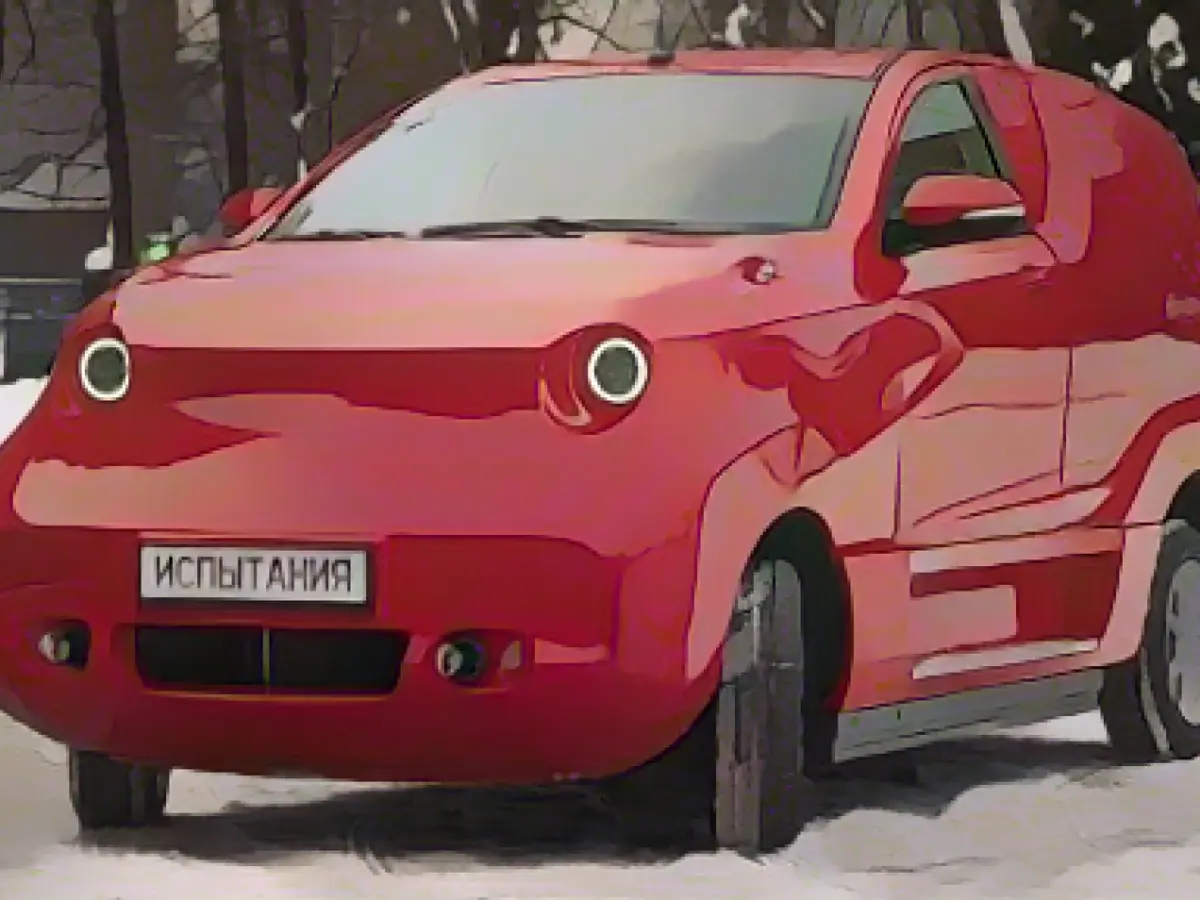Unveiling the Contender: Russia's Experimental EV Challenge
With its striking appearance and unexpected nature, the recent prototype presented by Moscow Polytechnic University and Avtotor in Kaliningrad is turning heads and sparking curiosity worldwide. Despite initial misconceptions, this red car — dubbed the "Tesla-killer" by some — is an innovative test vehicle, designed to exhibit Russian prowess in the electric vehicle (EV) sector.
When the headlines blared about a new rival to Tesla, few expected that Avtotor's latest contribution would take such an unusual form. Known for producing vehicles for brands like BMW, Ford, KIA, and Hyundai, this Russian manufacturing plant put its reputation on the line, inviting skepticism and intrigue in equal measure.
Beneath its unconventional exterior, the test car aims to prove Russian capabilities in the EV realm. With a focus on technology, domestic production, and market competition, this experimental vehicle has a lot to offer and offers valuable insights into the country's future in the automotive world.
A Technological Foray
As a "Tesla-killer," the test car possesses advanced features, including a cutting-edge battery management system, efficient motors, and innovative design components. By showcasing these technologies, Moscow Polytechnic University and Avtotor seek to highlight Russian prowess and establish themselves as competitors in the highly competitive EV market.
Empowering Domestic Production
In addition to technological innovation, the test car plays a significant role in promoting Russian automotive industry capabilities. Developing such a vehicle domestically can help reduce reliance on foreign imports and contribute to the country's economic diversification, boosting confidence in Russian manufacturing and technological prowess.
Competing in the Global Market
With its innovative design and advanced technology, this test car is intended to make a splash in the global EV market, particularly in regions where Russian brands are less prominent. By introducing competitive EVs to these markets, Moscow Polytechnic University and Avtotor may attract more consumers and carve out a significant market share for Russian electric cars.
Fueling Future Infrastructure Development
The success of this test car could also spur the development of supporting infrastructure, such as charging stations and service centers, which are vital for the widespread adoption of electric vehicles. Investing in infrastructure can help make electric transport more convenient and accessible, promoting eco-friendly practices and reducing pollution in urban areas.
Breaking Ground for Future EV Development
Despite its experimental nature, the test car offers an exciting glimpse into the future of Russia's electric vehicle industry. With the anticipated release of the Atom electric car (scheduled for 2025), the market will see a vehicle introducing groundbreaking features capable of attracting consumers back to the market, thereby revitalizing confidence in electric cars and the infrastructure that supports them.
In conclusion, the test vehicle unveiled by Moscow Polytechnic University and Avtotor is more than just an unusual creation. It represents a bold move towards promoting Russian technological advancements and establishing a formidable presence in the global EV market. By fueling domestic production, driving market competition, and spurring infrastructure development, this innovative test car paves the way for a greener, more sustainable future in the Russian automotive sector.







